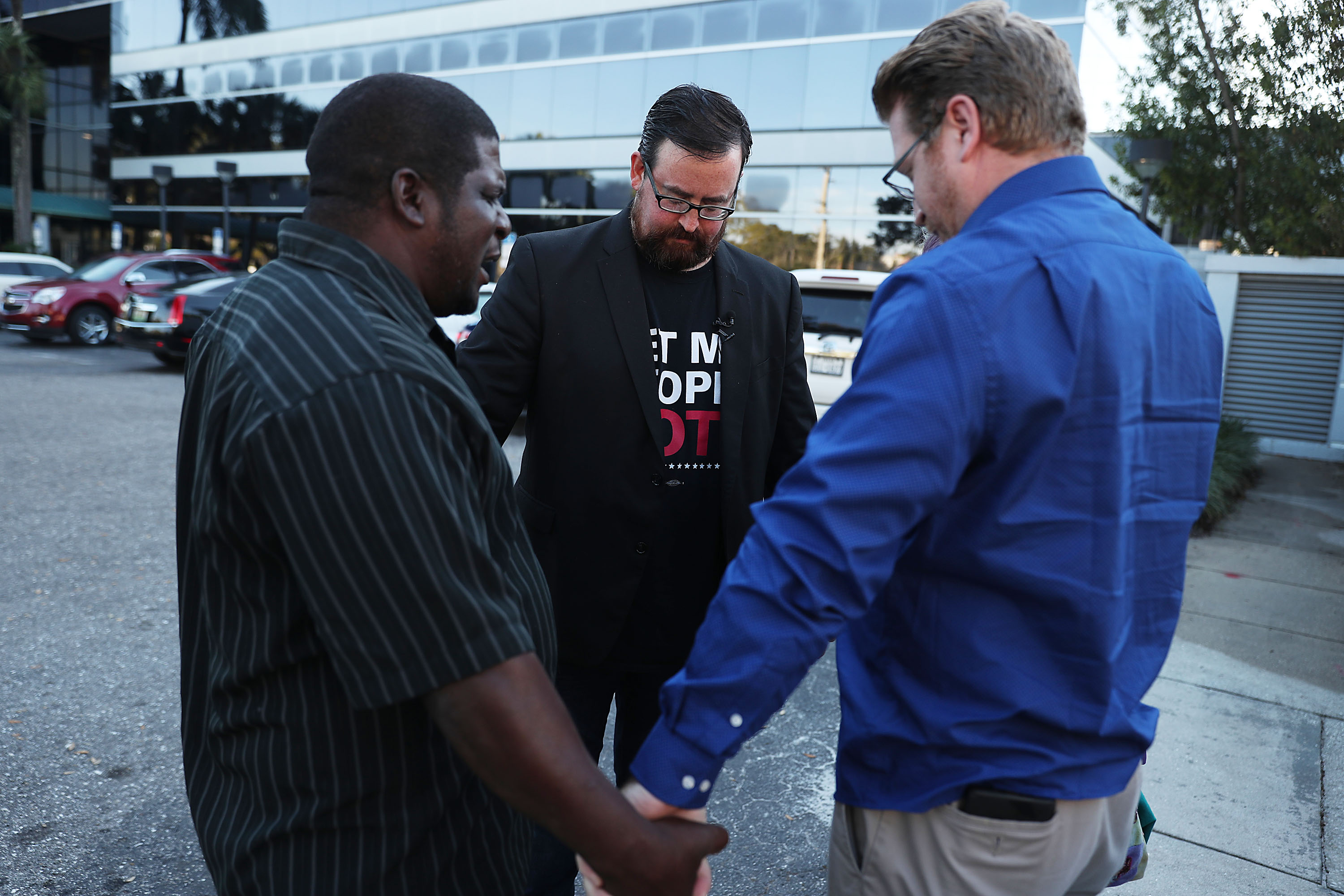More than a million Florida ex-convicts get voting rights
Permon Thomas (left) prays with Neil Volz (c) and Lance Wissinger in the parking lot before Volz and Wissinger go into the Lee Country Supervisor of Elections office building to register to vote on January 08, 2019 in Fort Myers, Florida (JOE RAEDLE)
Miami (AFP) – Some 1.4 million people in Florida can begin registering to vote on Tuesday after the US state’s electorate ended a measure banning suffrage for people with felony convictions.
In a crucial swing state with a recent history of unusually close elections, the addition could be decisive in the 2020 elections — although analysts are far from united about the implications of the change.
The ban has disproportionately affected African Americans, who lean Democratic, Hispanics, who don’t vote as a bloc, and those with less education, seen as skewing Republican.
“I want to cry,” said Yraida Guanipa, a 57-year-old former convict who now heads the YG Institute NGO, which helps people with criminal histories reintegrate into society.
Guanipa had just left the office of the Miami-Dade County Elections Department, where she registered to vote early in the morning after nine years of struggling to regain the right.
She was released from prison in 2007 after 12 years behind bars for a drug distribution-related conviction.
During November’s midterm elections Florida voters approved Amendment 4, which restored the right to vote to ex-convicts who have already served all terms of their sentence, and did not commit sex crimes or murder.
In Florida, 10 percent of the adult population, including one in five African Americans, could not vote prior to the lifting of the restriction, which dated back 150 years.
Stripping felons of voting rights — a disproportionate number of whom were freed blacks — was a tactic employed by southern white lawmakers as one of a variety of ways to disenfranchise former slaves.
– ‘A full citizen’ –
“I didn’t feel like a full citizen, I felt like a second-class citizen,” said Daniel Torna, a financial analyst who also went to register in Miami.
“I pay taxes, I’m active in the community, I work, I go to school, I do everything other people do, I just couldn’t vote,” said Torna, who completed his sentence in 2010 for a drug-linked crime.
“The road back to responsible citizenship has been one of my life’s greatest challenges,” Desmond Meade, president of the Florida Rights Restoration Coalition, which pushed for the amendment to restore voting rights, said in a statement.
“The struggle to achieve access to democracy for myself and more than a million fellow Floridians has been long,” Meade said.
How many of the newly eligible voters will actually register and cast ballots in the next elections is anyone’s guess, but some analysts see an opportunity for Democrats.
Nationwide, nearly six million people were denied the vote in the last US election because they had committed a felony.
Most were in Florida, where a virtual tie in the 2000 US presidential election set the stage for an epic dispute that the Supreme Court decided in favor of George W. Bush.
Disclaimer: This story is published from a syndicated feed. Siliconeer does not assume any liability for the above story. Validity of the above story is for 7 Days from original date of publishing. Content copyright AFP.


